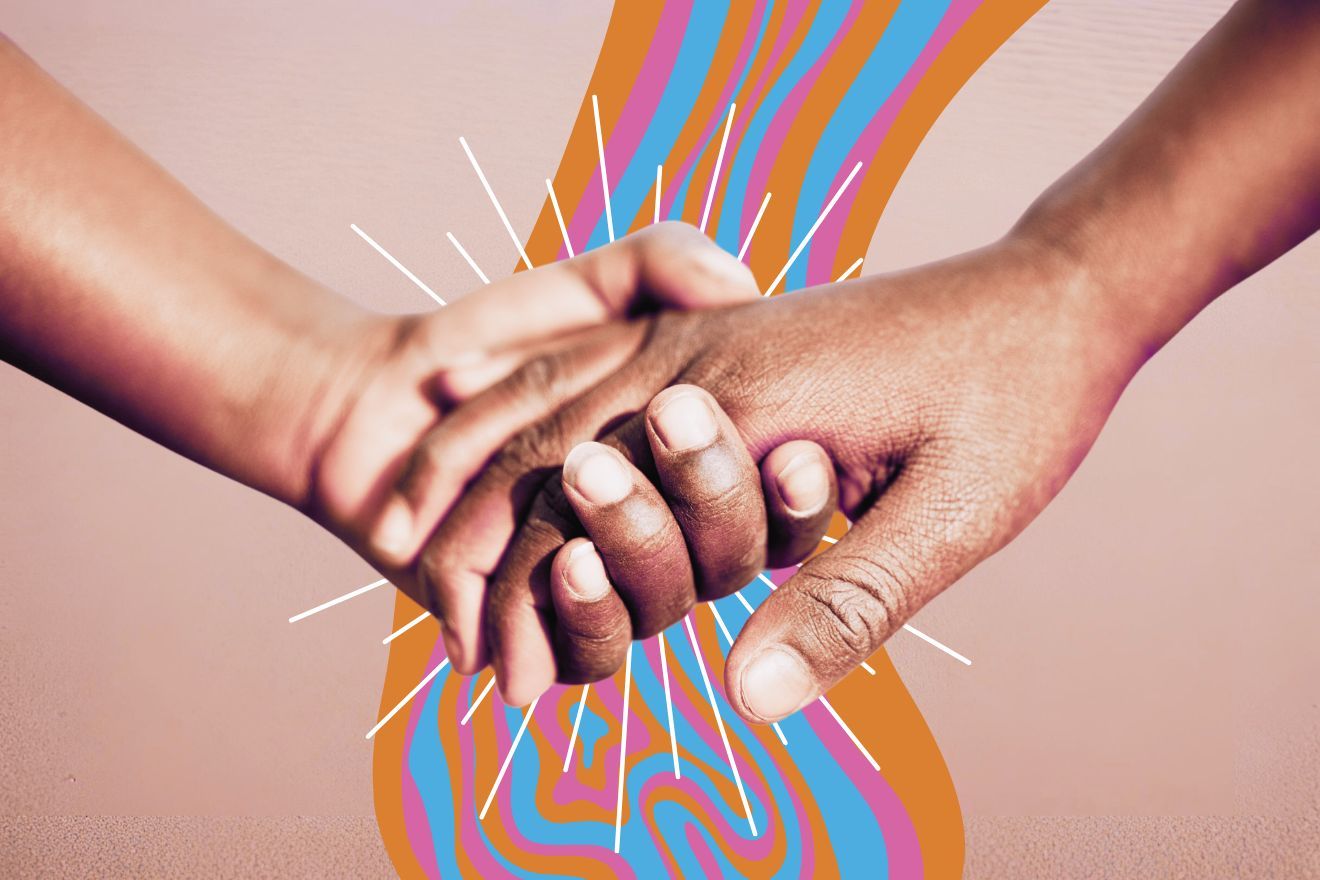I believe that in the spiritual sense, we are all One Unity Consciousness, but let’s be frank here: in our human existence, boundaries are vital priorities. If you are on the Plant Medicine path, setting healthy boundaries is an essential step of your integration process. In this article, I’ll discuss why this is so.
To begin with, we are all wounded, disconnected, and ignorant to a certain extent. Sorry to break it, but prove me otherwise. When you are wounded, you bleed on others even without wanting to. The best you can do to protect yourself and prevent hurting others is to establish healthy boundaries.
“Boundaries are essential in relationships on our path to fully heal and awaken.”
Nina Izel
In a way, it’s funny that we call them healthy boundaries—if we were truly healthy, we wouldn’t need any boundaries! But here we are in our lovely brokenness, and it’s our responsibility to heal. Healing is a process, and it takes time. While this happens, boundaries are the only way to prevent further damage and stop the “chain of pain,” as I like to call it.
So, What Is a Boundary?
Simply stating a boundary draws a line between what is yours and belongs to you to deal with and what is not yours, doesn’t belong to you, and can’t be resolved by you.
And yes, often, it’s difficult to discern what is yours and what is not. Most people need the support of therapy for that—and I am not joking.
Why Do We Need Boundaries?
Healthy boundaries provide containment, safety, and protection. According to Maslow’s Hierarchy of Needs, our need for safety is at the bottom together with other basic needs, such as the food and shelter we need as a foundation for growth.
You cannot meet your needs higher up on the triangle and move towards enlightenment if your basic needs, such as safety, are not fulfilled first. Boundaries create a sense of safety that is essential for both growth and personal empowerment.
When you have clear boundaries, it is also easier to discern what is yours to work on, and what to let go of. Taking responsibility for what’s yours will free you up from focusing on others and trying to solve their problems instead of your own. This allows you relief from unnecessary stress and anxiety that naturally occurs when you don’t have boundaries.
Boundaries help us by:
- Providing safety and protection
- Growing and learning to access your power
- Bringing freedom from stress and anxiety
How to Set a Boundary
When boundaries are established, there is often conflict because you are creating a new status quo, and often people are not going to like it. They want to receive the same from you as before, and they naturally get upset when you first say no.
To set a boundary, you have to accept that:
- Boundaries will be established through conflict until a certain level of awareness is reached
- You need to face your fears of possibly losing relationships if your boundaries are not respected
- It’s necessary to overcome your escapism, avoidance, denial, and resistance to stand up for yourself
- You have to enforce your boundaries and do what you have said you will do when people cross your boundaries
One of the most common limiting beliefs that often comes up for my clients is that it’s selfish to put a boundary in place. That sacrifice is an expression of love and a noble act. This can’t be further from the truth and is exactly the kind of mindset that creates a self-sacrificing behavior.
1. Get Clear on What Your Boundaries Are
What is acceptable and not acceptable in your relationships? For example, yelling and insulting somebody is not acceptable to me in a relationship. How do you know where you draw the line? A good way to figure this out is to ask yourself what you would do if a stranger treated you the way your loved one is treating you.
2. Decide What You Will Do if This Boundary Is Crossed Again
What will you do differently if the same situation occurs again? For example, if I am yelled at again, I am going to walk away and leave the situation. Then, if this person doesn’t stop their yelling behavior and respect my boundaries, I will leave the relationship.
Follow your Curiosity
Sign up to receive our free psychedelic courses, 45 page eBook, and special offers delivered to your inbox.3. Communicate Your Boundaries and What Will Happen if It’s Crossed Again
How will you communicate these boundaries to others? For example, I decided that yelling at me and insulting me was not acceptable anymore for me in this relationship. I respectfully asked that they avoid this in the future. I expressed that if this behavior continues, I will walk away from the situation until they calm down. And that if things don’t start to change, I am likely to eventually leave the relationship.
4. Enforce the Boundary
What will happen if your boundary is crossed again? This is where most efforts fail. If you don’t enforce the boundary, others will surely cross it again. People will quickly learn that you are talking the talk but not serious enough to actually follow through. If you are on the receiving end of abuse or your boundaries are violated, the best thing you can do is to respect yourself enough to walk away.
Lack of Boundaries
How do you know where your boundaries should be? When a boundary is crossed, it’s natural to get frustrated and then angry. This is your inner being, letting you know that something that is not okay is happening and that you need to take action.
A healthy response to your boundaries being disregarded is either to stand up and defend yourself or to leave the situation in order to protect yourself and maintain your boundaries.
Unfortunately, in most cases, we suppress that anger and instead have a freeze response where we just allow the abuse or transgression to happen.
Resources to Strengthen Your Relationships and Connections
Check out the following articles full of expert guidance for deeper connections:
- Follow Our 8 Best Ways to Practice More Mindfulness in Your Relationship Right Now
- Learn to Navigate the Challenges of Dating and Psychedelic Use in Relationships as a Psychonaut
- Feel Closer to Your Partner in Only 8 Steps: Neuroscience-Rooted Techniques
- Understand the Potential Healing Connections That MDMA Brings to Relationships and Boundaries
The purpose of anger is to protect us. When you learn to suppress this natural mechanism, you become more vulnerable. You’re more likely to be attacked, to become a victim, and to lose your power.
This is the reason why a lack of boundaries leads to disempowerment and often depression.
What happens when you have no boundaries?
- Constant worrying and anxiety due to the lack of safety
- Disempowerment and depression
- Self-sacrifice, people-pleasing, and co-dependency
- Suppressed anger, or passive-aggressive behavior
Boundaries are essential in relationships on our path to fully heal and awaken. They are vital for our safety and emotional well-being. Without boundaries, emotions can become entangled, leading to confusion, resentment, and an overall strain on your health.
Respecting each other’s limits and preferences creates a foundation of trust. This encourages open communication and collaboration, which are essential elements for the growth and longevity of any relationship. Understanding and respecting each other’s boundaries enhances the likelihood of finding mutually beneficial solutions during challenging times.
By recognizing the importance of establishing and maintaining healthy boundaries and practices around forming these, we can cultivate relationships that not only endure the test of time but also flourish in a positive and supportive environment.
I invite you to reflect on where your boundaries are right now.
With love,
Nina Izel






